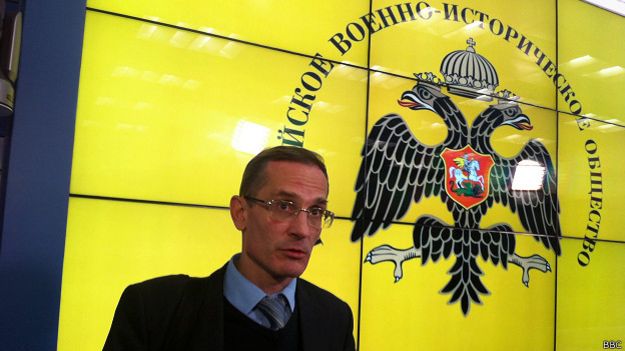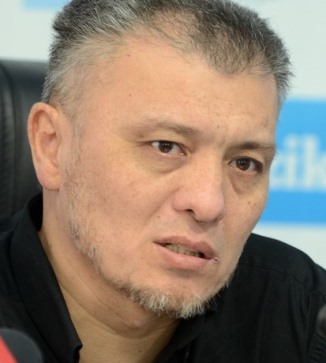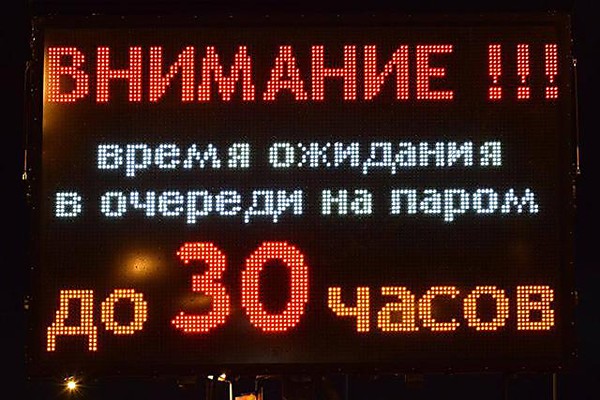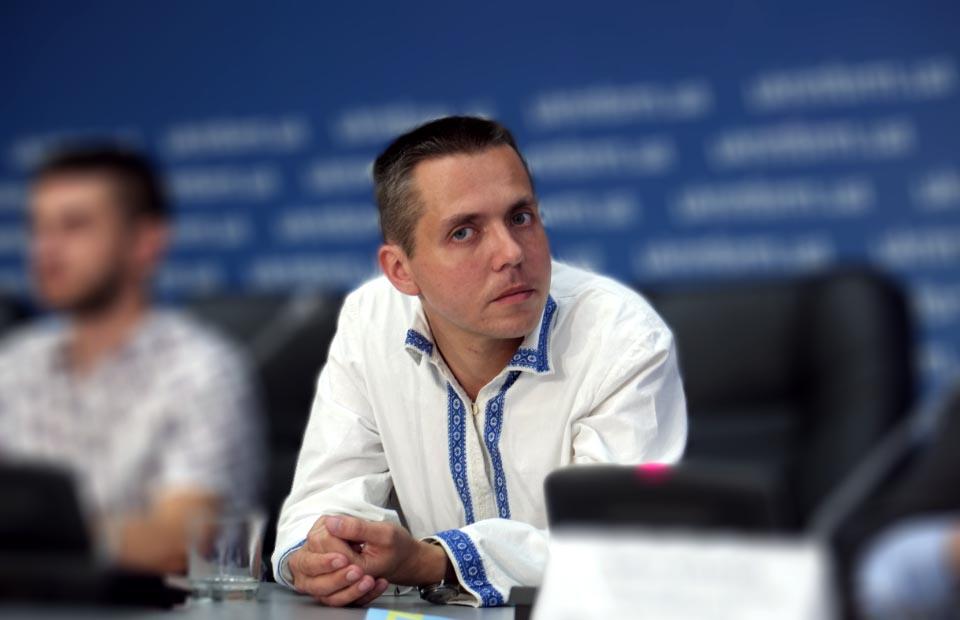“I would add that it is their [the Ukrainians’] problem,” said governor of Sevastopol Sergey Menyaylo, who stood nearby.
The book History of Crimea was created on the initiative of the Russian military-historic society (RVIO), whose chair is Medinsky. The authors, 14 historians from Crimea, Moscow and Lipetsk, worked quickly.
A little more than half a year has gone by since the annexation of Crimea by Russia, and the new book on the history of Crimea can already be bought in stores in Moscow. However, the Minister for Culture assures there was no haste with issuing the book.
“It wasn’t one person who sat down and wrote it in three months. I think everything is very timely,” Medinsky explains.
Historian Yury Borisenok assures that the job was done “in record time” not because there is some social demand, but thanks to the fact that the professional historians had certain reserves in the shape of archive materials.
Annexation or reunification?
According to the editors, the book History of Crimea is to be included in the school program on the Crimean peninsula.
Head of the republic of Crimea Sergey Aksionov, who participated in the presentation via video-chat from Simferopol, promised to support this motion, though he admitted he had not read the book yet.
The Russian book does not say anything about the “annexation of Crimea” (the term Kyiv and the global community insist on). The events are interpreted exclusively as “Crimea’s reunification with Russia” or “the return of Crimea to Russia.”
“The historical events of the ‘Russian Spring’ of 2014 naturally led to Crimea’s reunification with Russia,” wrote Vladimir Medinsky in the preface.
Curator of the project, scientific head of SVIO Mikhail Myahkov claimed that the authors of the book published in Russia aimed to related the following thesis to the readers: “Crimea has always been ours.”
The first edition of the book History of Crimea only has 4 thousand copies.
Dzhemilev: a shame to Russian historiography
Leader of Crimean Tatars for many years, human rights activist Mustafa Dzhemilev told bbcrussian.com that the emergence of the book History of Crimea in Russia is a shame to Russian historiography and scholars who decided to use their work to justify the annexation in Crimea.
“These people are dependent, they will write what the government tells them to. This is dictated history which will be forcibly imposed on everyone,” says Dzhemilev. “Saying that this or that territory is ‘ours’ based on the fact that it was conquered once is about as primitive as if Crimean Tatars were to say that Moscow is our city because we occupied it back in the day.”
In November Human Rights Watch reported on the massive violation of human rights in Crimea, especially instances of intimidation and persecution of Crimean Tatars, civil activists and journalists who stand against the policies of the Russian government. Russia’s actions in regard to Crimea is qualified in the HRW report as occupation.
According to Dzhemilev, who has been the Ukrainian President’s representative for Crimean Tatar issues since August, there can be no single interpretation of Crimean history under the current conditions.
The participants of the presentation of the book in Moscow claimed that Kyiv “is making history look prettier,” which is why Russia decided to “restore historical truth.”
“When we looked at the so-called textbooks they used to teach in Ukraine, the scholars were horrified,” said Vladimir Medinsky. “And there was an initiative to write a normal, good, scientific history of Crimea.”
Neither autonomy nor tolerance
The two last chapters of the book, Kyiv’s Headache and St. George’s Colors Over Crimea Again, were written by Moscow-based historian Alexandr Romanov. Romanov, among other things, retells the book published by the Ukrainian Historical Institute in June 2014, Crimea: A Road Through the Centuries, in which the director of this institute Valery Smoliy calls Crimea “an integral part of Ukraine.”
“This phrase is hopelessly outdates: by the summer of 2014, the whole world, including the best friends of the current government in Kyiv, clearly understood that Crimea today is not an integral and historically obsolete part of Ukraine,” writes Romanov.
According to the writer, the measures the Kyiv government had taken to Ukrainize Crimea and Sevastopol, including President Viktor Yushchenko’s order, had “rather the contrary effect to what the initiators had thought.” The initiatives from Kyiv, according to Romanov, in Crimea faced “not just impartial ignoring, but conscious protest.” The pro-Russian President Viktor Yanukovych’s ascent to power did not help either.
“The enactment of the Kharkiv Agreements [on the extension of rental for the Black Sea Fleet bases in Crimea] gave Kyiv another chance to regulate Crimea’s problems. However, the usual policy of romantic infantilism was, as it turned out later, characteristic of Yanukovych too,” claims History of Crimea.
As a result, by the beginning of 2014, Crimea did not become “a real autonomy nor any degree of tolerant to Ukrainian values,” claims Russian historian Alexandr Romanov.






